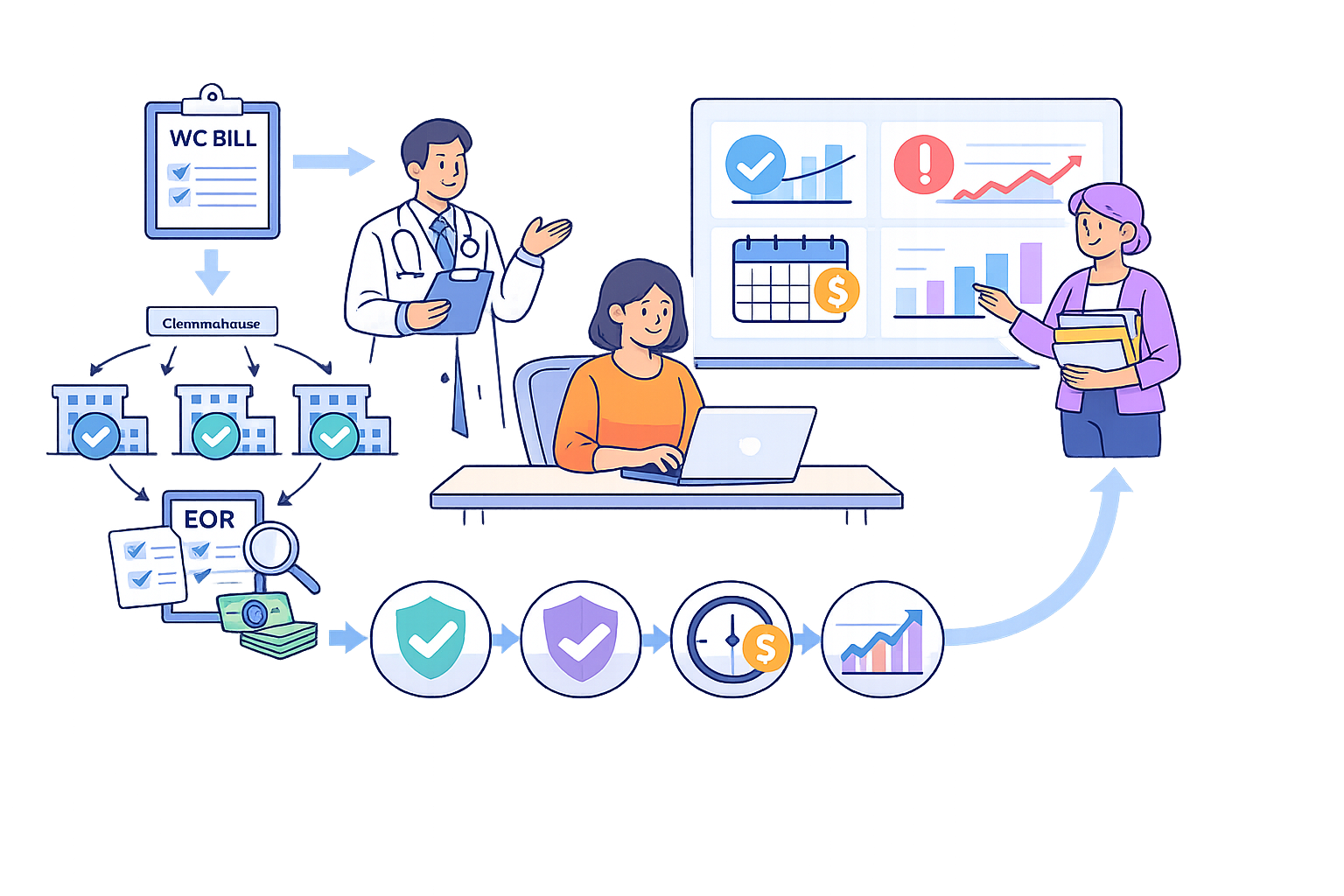CA: No Authorization Required for Med-Legal Diagnostic Tests

California providers: You do not need authorization to conduct diagnostic testing as part of a Medical-Legal evaluation.
And yes, the claims administrator is responsible for paying for Medical-Legal diagnostic tests under California Division of Workers’ Compensation (CA DWC) regulations.
A Qualified Medical Evaluator (QME) showed daisyBill a letter from Sedgwick Claims Management Services, Inc., requesting the QME conduct a Medical-Legal evaluation and “perform any necessary tests.” Due to the vague wording, the QME was concerned that, without formal authorization, Sedgwick might deny payment for diagnostic procedures.
Worse, Sedgwick claimed that the injured worker would bring diagnostic records to the appointment, in violation of state requirements for properly delivering and documenting records for Medical-Legal evaluations.
Fortunately, California regulations are clear about diagnostic testing.
As long as the physician properly justifies and documents the need for diagnostic testing for Medical-Legal purposes, it is 100% payable, with no authorization required. See the details below.
QME Fears Payment Denial for Med-Legal Diagnostics
The QME, a daisyCollect client, shared the letter below from Sedgwick with our agents. In it, the Sedgwick representative stated (emphases ours):
“...medical records have been sent under separate cover. [The injured worker] has been asked to bring any related diagnostic films to this appointment. If [the worker] fails to provide these films, please perform any necessary tests.”
The QME reached out to daisyCollect to confirm whether they could perform the necessary psychological testing, as Sedgwick’s instructions seemed (in the QME’s words) “ambiguous and non-specific.”
Fortunately, California regulations regarding Medical-Legal diagnostic testing are clear and specific.
CA Med-Legal Diagnostic Testing: The Facts
QMEs and Agreed Medical Evaluators do not need the payer’s permission to conduct necessary diagnostic tests as part of a Medical-Legal evaluation. The only requirements are as follows:
- Check that the existing medical records don’t render the test redundant (those records must be properly delivered and attested to according to state law and regulations, not carried in by the patient; we’ll explore this further in an upcoming article).
- Document the subjective complaints and physical findings that warrant the test in the evaluation report.
- Document the reasons the diagnostic tests were necessary.
- Include the diagnostic HCPCS code on the bill for reimbursement and charge according to fee schedule rates.
The California Division of Workers’ Compensation deleted sections of its FAQ page that affirm the payability of Medical-Legal diagnostic tests, with no explanation given. Regardless, the facts and relevant regulations remain in place.
Fact #1: Medical-Legal diagnostic testing is billable at fee schedule rates. California Code of Regulations (CCR) Section 9794 states (emphases ours):
“X-rays, laboratory services and other diagnostic tests shall be billed and reimbursed in accordance with the official medical fee schedule adopted pursuant to Labor Code Section 5307.1.”
Fact #2: Medical-Legal physicians must document the necessity of any diagnostic testing based on the injured workers’ complaints and the physical examination results. § 9794 states (emphases ours):
“In no event shall the claims administrator be liable for the cost of any diagnostic test provided in connection with a comprehensive medical-legal evaluation report unless the subjective complaints and physical findings that warrant the necessity for the test are included in the medical-legal evaluation report.”
Fact #3: Under § 9794, a diagnostic test is not reimbursable without authorization when the medical records the physician received already include the information the test would provide (emphases ours again):
“Additionally, the claims administrator shall not be liable for the cost of diagnostic tests, absent prior authorization by the claims administrator, if adequate medical information is already in the medical record provided to the physician.”
In this case, the QME ultimately conducted the diagnostic tests, for which Sedgwick (in a pleasantly surprising act of compliance) paid in full.
Nonetheless, in California workers’ comp, providers have to know the rules, because Claims administrators (Sedgwick in particular) don’t always play by them.
daisyBill gets providers paid faster, more accurately, and with less hassle. Click below to learn more:
BILL BETTER: DAISYBILL
DaisyBill provides content as an insightful service to its readers and clients. It does not offer legal advice and cannot guarantee the accuracy or suitability of its content for a particular purpose.

.gif)





